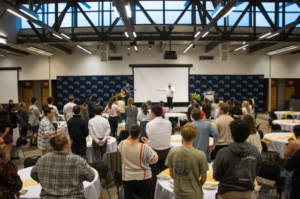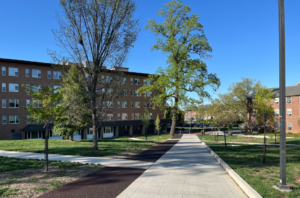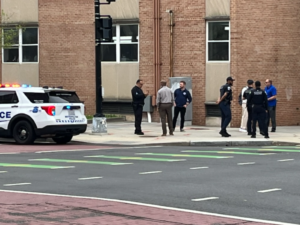Campus Ministry Sees 100% Increase in Mission Trip Applications
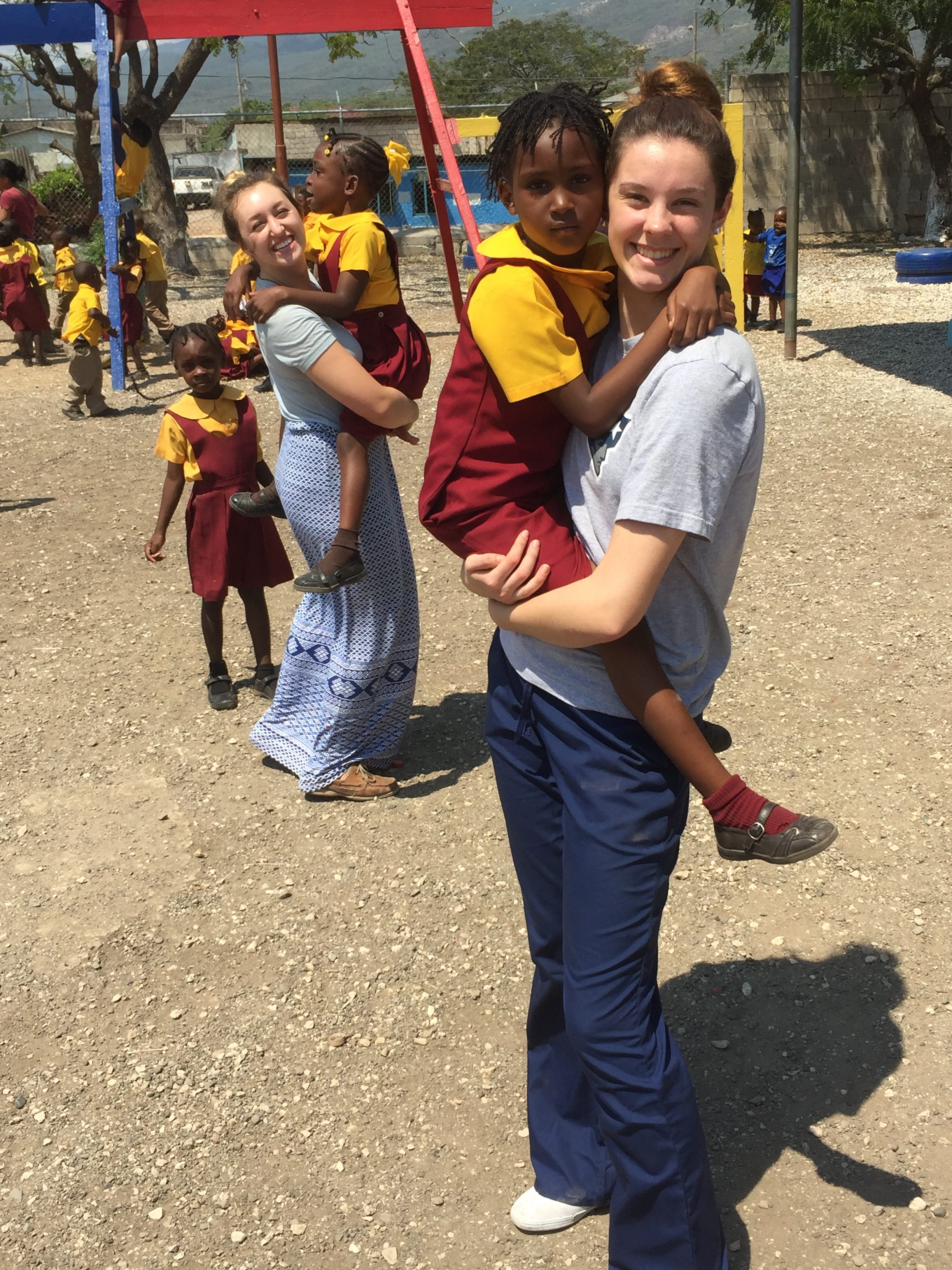
CUA students like junior Nicole Federici have participated in mission trips in previous years. Courtesy of Katie Broshek
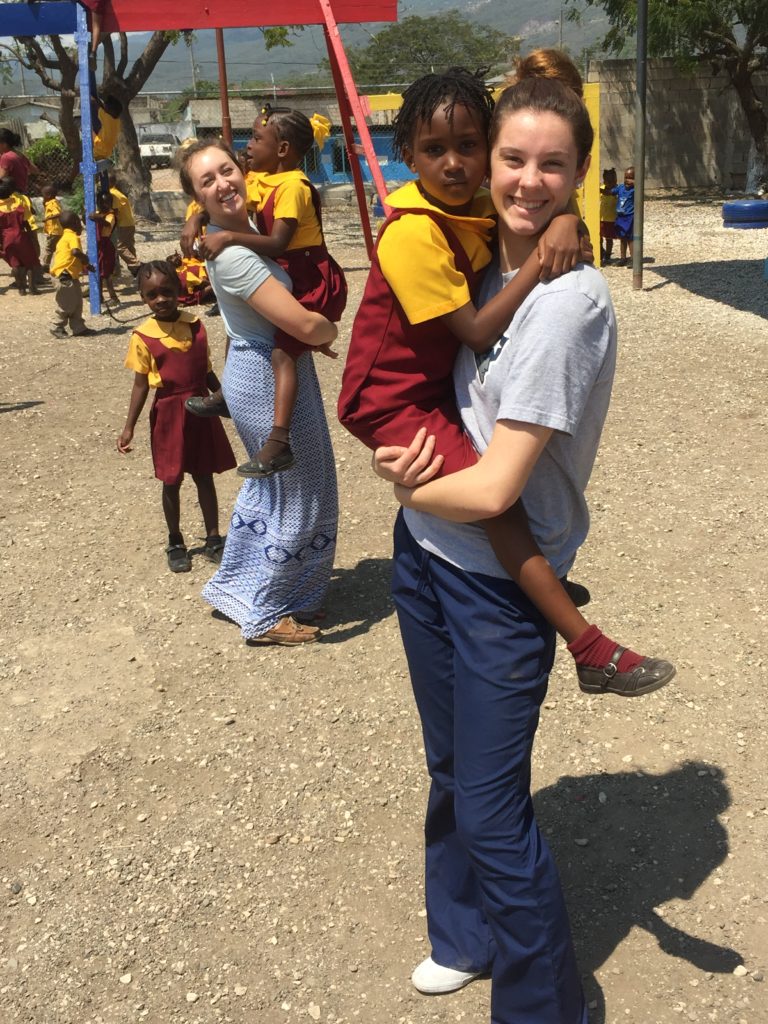
By Contributor Katie Broshek
On a crisp November afternoon, more than 100 Catholic University students are glued to their smartphones, anxiously refreshing their email inboxes in hopes of receiving an email confirming their spring break plans. Just like many of their peers across the country, they are hoping to spend their break somewhere exotic and exciting, and preferably with a warmer climate. These students, however, are not waiting for confirmation emails from cruise lines or tropical resorts. These students are awaiting an email from the Office of Campus Ministry, hoping to hear that they have been accepted to a mission trip where they will spend spring break serving marginalized communities.
On March 3rd, 2018, the Office of Campus Ministry will send about 60 students in total on week long mission trips to West Virginia, the Dominican Republic, Jamaica, Ecuador, and the US/Mexico border at El Paso and Las Cruces. Students traveling on these trips will be serving vulnerable populations in a variety of different ways, with the focus not only on providing service and charity, but also on learning about social justice. This year, the Office of Campus Ministry saw some changes in their mission trip program. In addition to adding a fifth spring break trip as opposed to its usual four, it also saw a 100% increase in the number of mission trip applications.
Catholic University’s Office of Campus Ministry has been providing students with the opportunity to spend their spring break on mission trips since 2001. Since then, more than 800 students have travelled both domestically and internationally to participate in a week long service trips. While the trips have varied slightly throughout the years, the main themes of spending time with the poor has remained constant. Each of the five spring break trips this year has a different focus. For example, students serving in Nazareth Farm in West Virginia will be working on manual labor in a low-income housing community, while students serving in both the Dominican Republic and Ecuador will be working with Rostro de Cristo, a group which focuses on ministry of presence. Students in Kingston, Jamaica will be spending each day with a different marginalized community, while students travelling to the border will be immersed in the realities of border patrol, detention centers, and immigration policy.
Emmjolee Mendoza-Waters is a member of the Campus Ministry professional staff working to make these mission trips possible. She serves as the Associate Director of Campus Ministry and Community Service. Mendoza-Waters attended Catholic University as an undergraduate and has spent the last sixteen years working for Campus Ministry, attending at least one mission trip every single year since she started working for the university.
According to Mendoza-Waters, the increase in student interest is something she was anticipating. Earlier this year, the Office of Campus Ministry received a “sizeable grant” which was used to subsidize the cost of mission trips, causing the price of each trip to decrease by about 40%. Mendoza-Waters said that they decided to use the grant in this way because they wanted to make mission trips more accessible to students.
“If mission trips are only for the rich, and only the rich could serve the poor, it’s defeating the purpose of what we’re trying to do,” Mendoza-Waters said.
While adding even more low-cost opportunities may be a goal for next year, Mendoza-Waters is currently focused on preparation for spring break 2017. According to Mendoza-Waters, in an effort to promote “true service rather than voluntourism,” there is an important education component to mission trip preparation. Mission trip leaders and participants attend bi-weekly Sunday night formation meetings together, which focus on topics ranging from white privilege to understanding cultural norms of the mission trip sites. Participants will also attend an overnight retreat, where students will focus on understanding the different pillars of Catholic Social Teaching and how it applies to the work they will do on mission. Further, through the formation prior to departure, students are reminded of the importance of always coming back to prayer and reflection.
“We recognize that not everyone is from the same background, so it’s important for us to recognize and honor where people are on their faith journey so that we are open and respectful to one another,” Mendoza-Waters said. “This is not a ‘here’s a packing list, we’ll see you at the airport’ kind of experience. There’s a certain level of trust that needs to be built among these students before they even depart for their trips.”
In addition to the preparation Mendoza-Waters is coordinating, Harrison Hanvey will also be working with students to prepare for the trips. Hanvey serves as the Assistant Campus Minister to Mission Trips and Community Service, a position he started only a few months ago. Prior to coming to work at Catholic, Hanvey lived and worked in an impoverished community in Honduras for three years. Having had the experience of living in community with the poor, Hanvey understands the importance of focusing not only on charity, but also on social justice.
“We only get so far by acknowledging the fact that there are poor people in the world. The real change happens when we start to ask questions about why people are poor and look to challenge the structures that might be causing poverty,” Hanvey said. “It’s important for students to encounter these issues and make them personal rather than just theoretical.”
One example of students taking a theoretical issue and making it personal is the trip to the U.S./Mexico border. Participating students are required to take a three-credit theology course during the spring semester. According to junior social work major Frank Gaetani, the class focuses on helping students understand “the push and pull factors of immigration” as well as the other political and social issues surrounding the border. Gaetani visited the border back in summer of 2016, and he will now be returning as the student leader for the trip. Gaetani says this particular trip is unique because there is such a strong educational component.
“It’s really special to have the opportunity to take what we learn in class and then get to actually experience it first-hand,” Gaetani said. “It’s so important to humanize these issues instead of just seeing them as concepts or ideas.”
Even though Catholic’s mission trip program has seen substantial growth since it began in 2001, many agree that there are still ways to keep improving and keep moving forward. Mendoza-Waters hopes that over the next few years they will continue to lower the costs of trips and add more service opportunities both domestically and internationally to help make trips more accessible to all students. Additionally, Mendoza-Waters predicts that as more students have the opportunity to go on mission trips and come back and share their experiences with their friends, the number of students who are interested will continue to grow.
“The lasting change doesn’t necessarily happen in the work we do, but in the stories we tell,” Mendoza-Waters said. “Mission isn’t about going into a new place and expecting to change lives. It’s about how the people that we meet will transform us, and then how we choose to share that experience of transformation with others.”

